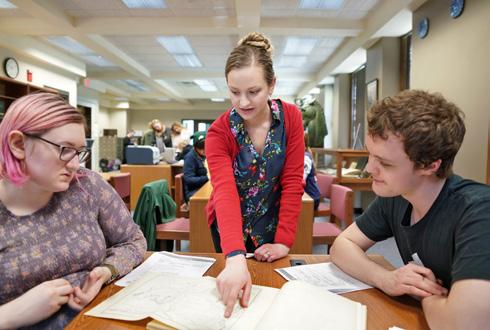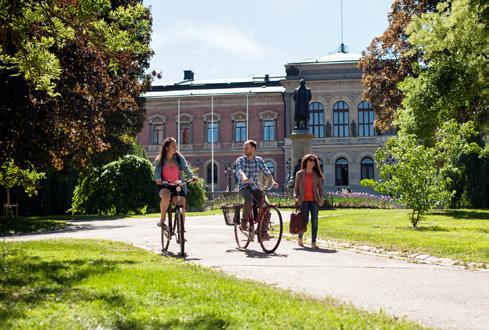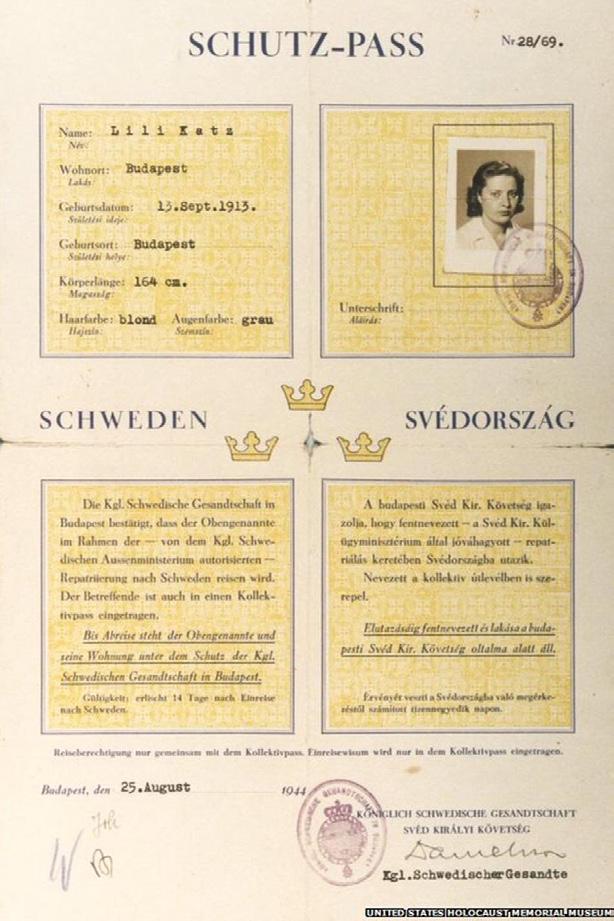
8 minute read
Road to 2045
A Swede with an American Mindset
By Jakob Lagercrantz
There is something fascinating when American entrepreneurship mixes with the Swedish stubborn focus of purpose. It can be seen with Armand Duplantis in pole vault, or the many Swedish professional ice hockey players in North America. But we also see this in industry.
Peter Carlsson was tired when I met him during the Ekotransport conference in Stockholm in 2016. He was keynote speaker and had just left four intense years as purchase and logistics manager at California-based Tesla, some of the more taxing years for that company. A year at Tesla is, according to former employees, as tough as ten years somewhere else.
Peter came back deeply committed to a new vision. He was going to build Europe’s first and largest green battery production plant. Few believed he could do it. He needed 40 billion SEK from investors; he still had very few industrial partners and did not know where to set up the plant.
The story is similar to Tesla some ten years earlier. A group of technical whiz kids got together and developed an electric propulsion system. Enters Elon Musk with a vision that seemed unattainable. He first wanted to develop a fast super car, then a luxurious electric car and eventually an electric car for everyone.
He did it. The Tesla Roadster came in 2008, the Model S in 2021, Model X as a bonus in 2015, and the Tesla 3 in 2017. Today Tesla is worth as much as nine of the largest car companies in the world (Volkswagen, Toyota, Nissan, Hyundai, GM, Ford, Honda, Fiat Chrysler and Peugeot). Not bad for a company less than 20 years old.
Peter Carlsson, born in southern Sweden and educated at the Luleå University of Technology in the far north, was smitten by the entrepreneurial spirit of Tesla and came back to Sweden with far wilder ideas than we usually see in the country of mellanmjölk (semi-skimmed milk). His vision was a gigantic venture, a pioneering project in a country with few electric vehicles at the time. His timing was good, the electric vehicle market was about to take off in earnest, and he had a bold and unique concept.
Today, Sweden is Europe’s second fastest growing market for electric vehicles. The average share of electric vehicles was more than 30 percent in 2020, while the other EU member states are lagging behind with a modest ten percent. The need for batteries is increasing, and the EU has vowed to produce more batteries in Europe in an effort to break Chinese dominance. Global demand for batteries is set to increase 14-fold by 2030, and the EU estimates it could account for 17 percent of that demand. The European batteries will need to be sustainable, and by 2024 all batteries used in Europe will require a carbon emission label.
Northvolt is a gigantic project. The plant just outside Skellefteå will start production in late 2021, just one year later than what Peter announced at the start. He has several industrial investors, including Scania, BMW and Volkswagen – companies that are crucial customers for the batteries produced. And the financing is secured. All this in five years!
The Swedish 2030-secretariat was formed to support the decarbonization of the transport sector in Sweden. The secretariat is independent from political parties and technical solutions.
Rendering of Northvolt Ett, Northvolt’s first large-scale battery factory being established in Skellefteå in northern Sweden. © Northvolt
Swedish Press Connects [ ] Association of Swedish Teachers and Researchers in America
Scandinavian Studies at Augustana College: Swedish Language and Nordic Culture from Classical to Contemporary
By Mark Safstrom
Mississippi River, and is about 165 miles west of Chicago, Illinois. The Scandinavian Studies program at Augustana is a skills-based liberal arts education, anchored in language study, translation experience and practical applications, A ugustana College is one of only a handful of American liberal arts colleges that offer Swedish language courses as well as a major and minor degree program in Scandinavian Studies. The such as history and archival work. Along with the Swedish language, courses cover a range of cultural topics, including literature, drama, art and film—classical to contemporary. The major is 28-credits and the minor is 16-credits, making it possible for many students to combine the major or minor Swedish roots of Augustana go way back to the early days with virtually any of Augustana’s other majors. of the great immigration in Augustana College also offers a reciprocal exchange the 19th century. The college program with Uppsala University in Sweden, which allows was founded in 1860 by students to study abroad for a semester or a year, paying Swedish and Norwegian normal tuition at home while receiving their education at immigrants as the first Uppsala. Similarly, Uppsala University students who wish school that would serve the to spend half a year or an entire year at Augustana are also Augustana Lutheran Church able to do so without additional tuition costs. The college established that same year. In the 1960s the church Swenson Center staff with students. Photo © Augustana College supports study abroad by offering $2,000 to every student. Known as Augie Choice, these grants can be used in the merged with other Lutheran denominations and nowadays junior or senior year. Three-week January-term courses Augustana College is one of the 26 colleges and universities and summer study in Sweden or Norway are also options. affiliated with the Evangelical Lutheran Church in America. Combining the major
Located in Rock Island in western Illinois on the banks with another humanities of the Mississippi River, the college is nestled among the field in particular can hills of its 115-acre, wooded campus. Augustana is a private, position students well for 4-year college and is home to about 2,500 students each graduate studies. Some year, most of whom live on campus. In addition to the 90 Augustana graduates have majors and areas of study to choose from, there are also 28 pursued graduate studies varsity athletic teams and 13 musical ensembles, as well as in Scandinavian countries. numerous clubs and Greek system. Rock Island is one of Assisted by faculty, students can find internships for credit the Quad Cities (population 400,000) which straddle the and/or pay. Some possible examples include, but are not limited to: the Swenson Swedish Immigration Research Center at Augustana, Swedish-American Archives of Chicago, Swedish-American Museum in Chicago, Akvavit Theatre Company, or the University Library of the University of Illinois at Urbana-Champaign. Students in the program are part of a small, dynamic cohort who learn together and participate in cultural activities like the annual Sankta Lucia festival, film nights, and exploring Augustana’s deep Scandinavian heritage. Välkommen till Illinois! https://augustana.edu/academics/areas-of-study/ scandinavian-studies


Scandinavian Studies grads and faculty, 2019. Photo © Augustana College Photo: Uppsala University

Swedish Press Connects [ ] En svår nöt att knäcka
Vaccin eller inte vaccin för utlandssvenskar – det är frågan
Svenska medborgare garanteras inte vaccin mot COVID-19 i Sverige. Är man utflyttad beror det på vilket land man bor i och vad man har för sysselsättning, enligt Sveriges Kommuner och Regioner, SKR. Oklarhet råder dock kring vad som gäller, något som frustrerar många utlandssvenskar.
Hoppet tändes hos människor världen över när nyheten om att ett flertal COVID-19-vaccin ar på väg att godkännas och snart skulle distribueras. Idag har hoppet dalat för många utlandssvenskar som riskerar att hamna mellan stolarna. Svenskar i Världen, SVIV, har försökt reda ut vad som gäller för denna grupp. – I en pandemi som denna anser vi att det är rimligt att Sverige tar sitt ansvar för samtliga medborgare, oavsett var man bor i världen. Vi sitter inte på lösningen men menar att beslutsfattarna ska vara medvetna om att denna grupp finns och att de måste inkluderas på ett eller annat sätt, säger Svenskar i Världens generalsekreterare Cecilia Borglin. finansierad, det vill säga skattefinansierad, men utföras av en privat vårdgivare, säger Erik Svanfeldt, internationell samordnare på avdelningen för vård och omsorg på SKR. Han fortsätter: – Med nödvändig vård avses ofta akut vård och begreppet ”nödvändig vård” används i EU-sammanhang. Vaccinering, som i Sverige är frivillig, betraktas som planerad vård och inte som akut vård. Därför betalar utlandssvenskar bosatta utanför EU/EES-området och Schweiz för hela vårdkostnaden vid vaccinering mot COVID-19, precis som vid annan planerad vård och med vissa särskilda undantag.
Vaccinationsfrågan är ingen enkel nöt att knäcka, och den berör alla människor oavsett nationalitet och land. – Vi får många mejl och samtal från utlandssvenskar som letar information eller har hamnat mellan stolarna genom att exempelvis vara utskriven och numera bosatt i ett land utanför EU/EES, men som av olika skäl befinner sig i Sverige just nu. Kommer de att kunna köpa sig vaccin om de nu inte kvalar in i det rådande svenska systemet? Frågan kommer att bli extra delikat om det kommer att införas speciella vaccinationsintyg för att få gå ombord på ett flygplan. Om Sverige nekar dem vaccin samtidigt som flygbolag inför krav på vaccinationsintyg hamnar de verkligen i limbo, säger Cecilia Borglin.

Utlandssvenskar riskerar hamna i limbo
Det finns ett antal begrepp som troligtvis kommer att få stor betydelse i arbetet med att hitta en väg framåt. För SVIV:s räkning har SKR förklarat två av begreppen och deras innebörd: offentlig och nödvändig vård. – Offentlig vård och nödvändig vård är inte motsatser. Offentlig vård handlar om hur vården finansieras och/eller utförs, att jämföra med privat vård. För att förtydliga används ibland begreppen ”offentligt finansierad vård” och ”offentligt utförd vård”. Vård kan ju vara till exempel offentligt

Folkhälsomyndighetens film “Nu börjar vaccinationen mot COVID-19”.
Summary in English: It is unclear whether Swedish expats are entitled to be vaccinated against COVID-19 while on a visit in Sweden. If they reside in a country outside of the EU/EES, they might not be eligible for tax-funded vaccinations, although they could possibly be vaccinated for a fee. They also face the unique dilemma of being ineligible for vaccination, while at the same time being unable to return to their country of residence if airlines require proof of vaccination from passengers before boarding. SVIV is working with the Swedish health authorities to find a solution.










